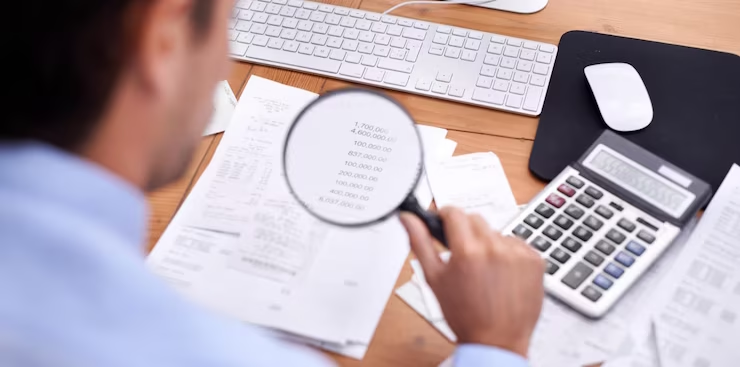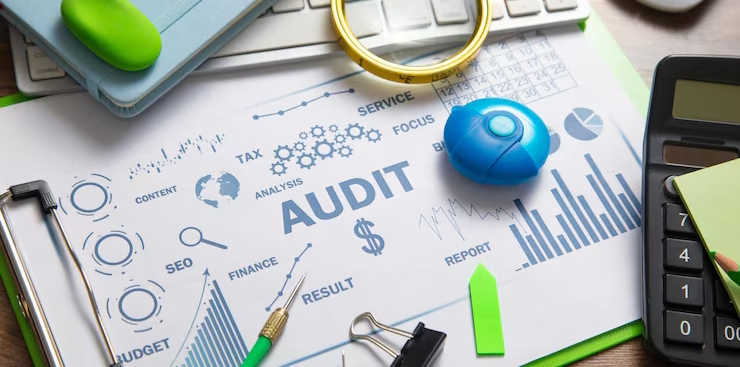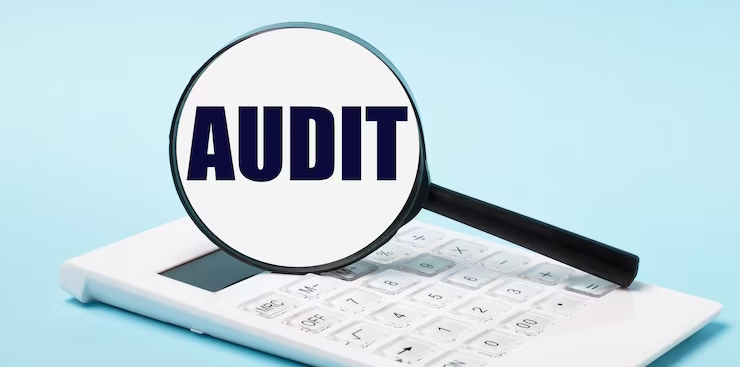In today’s complex financial landscape, businesses and individuals alike are increasingly turning to forensic accounting audits to ensure transparency, detect fraud, and maintain financial integrity. Whether you’re a business owner looking to safeguard your assets, a legal professional seeking expert insights, or an individual trying to uncover financial discrepancies, forensic accounting audits play a critical role. This detailed blog will provide you with an in-depth understanding of what forensic accounting is, why it’s important, and how it can help protect your financial future.
What is Forensic Accounting?
Forensic accounting is a specialized field of accounting that combines financial expertise with investigative skills to uncover financial fraud, mismanagement, and other financial irregularities. Forensic accountants are often called upon to perform audits and investigations where fraud or misconduct is suspected. These audits not only help identify financial discrepancies but also provide support for legal proceedings, offering expert testimony and evidence for courts, law enforcement agencies, and corporate governance.
The term “forensic” comes from the Latin word forensis, which means “of the forum,” or “related to the court of law.” In this context, forensic accounting refers to the application of accounting principles and investigative techniques in legal matters, ensuring that financial information is accurate, legitimate, and free from fraudulent activity.
The Role of a Forensic Accounting Audit
A forensic accounting audit is a comprehensive review of financial records with the primary goal of detecting fraud, identifying financial mismanagement, and ensuring compliance with financial regulations. Forensic accountants use a variety of methods to analyze financial data, including:
- Data mining and analysisto identify unusual patterns
- Transaction tracingto uncover fraudulent activities
- Internal control evaluationto pinpoint weaknesses in financial systems
- Document examinationto verify the authenticity of financial statements and contracts
- Financial reporting analysisto spot discrepancies and inconsistencies
Forensic accounting audits can cover a broad range of areas, including corporate fraud, embezzlement, money laundering, financial reporting fraud, and even bankruptcy investigations. In addition to fraud detection, forensic accountants are also skilled in financial dispute resolution and can assist in matters involving contract disputes, business valuations, and insurance claims.
Why Do You Need a Forensic Accounting Audit?
Detecting Fraud and Mismanagement
One of the most critical reasons for hiring a forensic accountant is to detect fraud and financial mismanagement. Fraudulent activities can happen in any business, regardless of its size, industry, or location. Unfortunately, many companies don’t realize the extent of fraud until it’s too late, and by then, significant financial damage may have already occurred.
A forensic accounting audit can help uncover hidden discrepancies in financial records that point to fraudulent activities, such as:
- Embezzlement: The misappropriation of company funds by employees or executives.
- Asset misappropriation: Employees using company assets for personal use.
- Fraudulent financial reporting: Manipulating financial statements to mislead stakeholders or regulators.
In addition to detecting fraud, forensic accountants also help businesses prevent future fraudulent activities by identifying vulnerabilities in internal control systems and implementing stronger safeguards.
Ensuring Legal Compliance
Forensic accountants also help ensure that your financial activities comply with local, state, and federal laws. Non-compliance with financial regulations can result in costly penalties, fines, and damage to your reputation. Forensic accounting audits can assess your financial records to ensure that you are adhering to relevant laws and regulations, including:
- Sarbanes-Oxley Act: A law designed to protect investors from fraudulent accounting activities by corporations.
- Financial Reporting Standards: Regulations that require businesses to maintain accurate and transparent financial reporting.
- Tax Compliance: Ensuring that your business is paying the correct taxes and not involved in any illegal tax schemes.
Forensic accounting audits ensure that you have met all legal requirements, reducing the risk of financial penalties or litigation.
Litigation Support and Expert Testimony
In cases where fraud or financial disputes have escalated to litigation, forensic accountants can provide invaluable support. They can analyze financial data, prepare reports, and offer expert testimony to help attorneys, judges, and juries understand the financial aspects of a case.
Forensic accountants often work with legal professionals in cases involving:
- Divorce settlements: Helping determine the fair value of assets and uncovering hidden income or assets.
- Business disputes: Providing insight into financial irregularities during mergers, acquisitions, or disputes.
- Insurance fraud: Investigating and proving whether a claim is legitimate or fraudulent.
- Bankruptcy cases: Helping trace assets and identify potential fraud or mismanagement leading to financial distress.
Forensic accounting audits provide crucial evidence that can support legal claims, offering a clear understanding of the financial facts.
Valuing a Business
Forensic accountants also play an essential role in business valuations. Whether you’re selling a business, entering into a partnership, or facing a dispute, accurate business valuation is crucial. Forensic accounting audits can assess all aspects of a business’s financial performance and provide a fair and unbiased valuation that accounts for assets, liabilities, and future financial potential.
A business valuation may be necessary in several situations, such as:
- Merger or acquisition: Determining the true worth of a business before selling or merging.
- Divorce: Assessing the value of a family business during divorce proceedings.
- Estate planning: Properly valuing a business as part of estate or succession planning.
- Shareholder disputes: Resolving disagreements about the valuation of a business’s stock or ownership interest.
How Forensic Accounting Audits Differ from Regular Audits
While both regular financial audits and forensic accounting audits involve reviewing financial records, they serve very different purposes and require different approaches. Here’s how they differ:
- Scope: A standard financial audit focuses on verifying the accuracy of financial statements in accordance with accounting standards. In contrast, a forensic accounting audit is a more in-depth investigation that looks for fraud, financial discrepancies, and signs of financial misconduct.
- Purpose: The primary purpose of a regular audit is to provide assurance that financial statements are fair and accurate. Forensic audits, however, aim to uncover hidden fraud or financial mismanagement and provide evidence that may be used in court.
- Methodology: Regular audits follow standard auditing procedures and focus on sampling transactions. Forensic audits, on the other hand, may involve detailed investigations of financial records, employee interviews, data analysis, and more to uncover irregularities.
- Outcome: A regular audit typically results in a report expressing the auditor’s opinion on the financial statements. A forensic accounting audit may result in detailed findings, including evidence of fraud or financial mismanagement, and could lead to legal action.
When to Call for a Forensic Accounting Audit
There are several situations where you may want to consider hiring a forensic accountant for an audit, including:
- Suspected fraud: If you suspect any form of financial fraud, such as embezzlement, insider trading, or financial misreporting.
- Disputes or litigation: If your business is involved in any legal disputes, such as shareholder disagreements or contract breaches.
- Mergers or acquisitions: When engaging in a merger or acquisition, forensic audits ensure transparency and fairness.
- Tax or insurance issues: If you are facing an audit from tax authorities or need to investigate insurance claims for fraud.
- Financial mismanagement: If you suspect mismanagement or irregularities in how funds are being handled within your company.
Benefits of Forensic Accounting Audits
- Fraud detection and prevention: Identifying fraudulent activities early can save your business from substantial financial losses.
- Accurate business valuation: Ensuring that your business is accurately valued in situations like mergers, acquisitions, or disputes.
- Legal support: Forensic accountants can provide expert testimony and documentation to support your case in legal proceedings.
- Increased transparency: Forensic audits provide a thorough examination of your financial records, promoting transparency and building trust with stakeholders.
- Risk management: Identifying weaknesses in your internal controls allows you to mitigate future risks.
Secure Your Financial Integrity Today
In conclusion, a forensic accounting audit is an invaluable tool for businesses, individuals, and legal professionals seeking to safeguard financial integrity, detect fraud, and ensure legal compliance. Whether you are a business owner looking to protect your assets, a legal professional in need of expert insights, or someone concerned about potential financial discrepancies, forensic accounting can provide the expertise you need.
Secure your financial future with confidence! Reach out to Mortgage Audits Online at (877)-399-2995 or visit Mortgage Audits Online today to learn more about how forensic accounting audits can help you. Don’t leave your financial integrity to chance—take control now!







